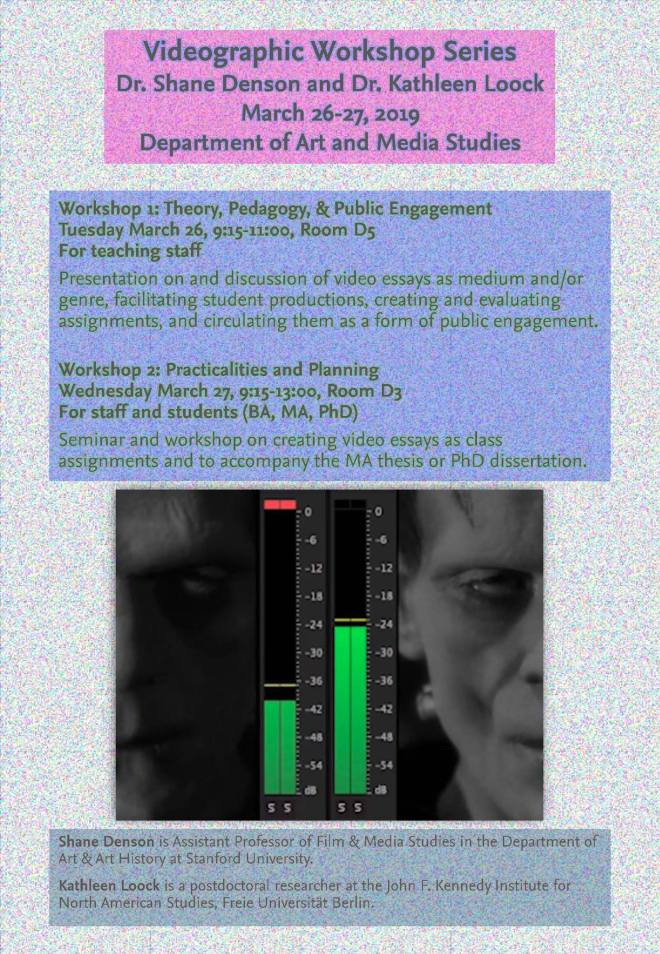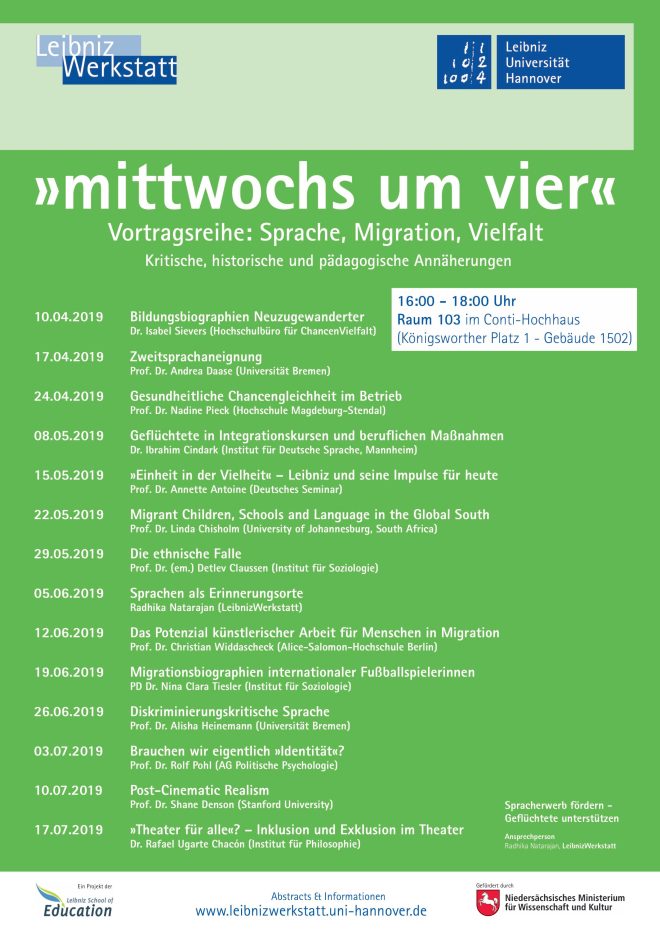
On July 10, 2019, I will be giving a talk titled “Post-Cinematic Realism” at the LeibnizWerkstatt lecture series on Sprache, Migration, Vielfalt at the Leibniz Universität Hannover. Thanks to Radhika Natarajan for inviting me!

On July 10, 2019, I will be giving a talk titled “Post-Cinematic Realism” at the LeibnizWerkstatt lecture series on Sprache, Migration, Vielfalt at the Leibniz Universität Hannover. Thanks to Radhika Natarajan for inviting me!
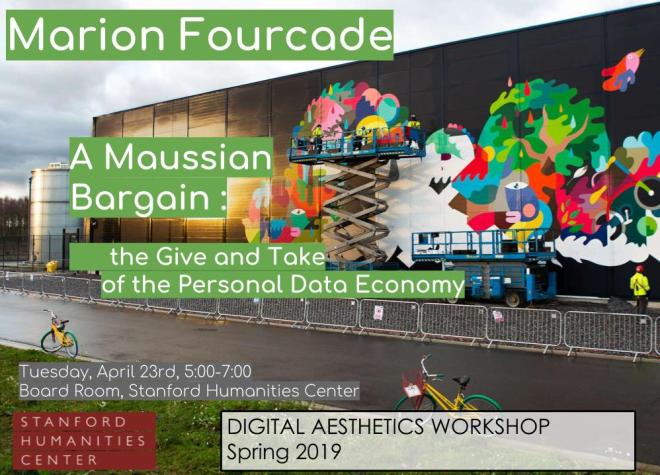
We are pleased to announce the first Digital Aesthetics Workshop event for the Spring quarter – on Tuesday, April 23rd with Marion Fourcade, Professor of Sociology at UC-Berkeley. She will be discussing Marcel Mauss, data circulation, and how to describe the strange new market our information is sold on.
“A Maussian Bargain: the Give and Take of the Personal Data Economy”
Primitive accumulation in the digital economy – in other words, the appropriation of new kinds of data about people, organizations, and things and their transformation into a form of capital – has often been described, following David Harvey, as a process of “accumulation of dispossession.” Yet how can we reconcile this argument with the fact that enrollment into digital systems often takes place in a much more benign fashion, for instance by signing up for a “free” service, or by responding to a “friend’s” invitation? Daniel Kluttz (UC Berkeley) and I draw on interviews with the designers and builders of digital systems to document the technical, political, economic and cultural conditions of the circulation of personal data. We rely on anthropological theory, specifically Marcel Mauss’s classic essay on The Gift, to conceptualize the role of non-market exchange and reciprocity in the origins of what Zuboff (2019) calls “surveillance capitalism.”
Marion Fourcade is Professor of Sociology at UC Berkeley. She received her PhD from Harvard University in 2000 and is an alumni of the Ecole Normale Supérieure in Paris, France. A comparative sociologist by training and taste, she has analyzed in her work national variations in neoliberal transitions, political mores, valuation cultures, and economic knowledge. Ongoing collaborative research with Kieran Healy looks at the rise, consolidation and social consequences of new classificatory regimes powered by digital data and algorithms. Other current projects include the microsociology of courtroom exchanges (with Roi Livne); stratification processes in the social sciences (with Etienne Ollion); and the politics of wine classification and taste in France and the United States (with Rebecca Elliott and Olivier Jacquet). Professor Fourcade’s work has appeared in American Journal of Sociology, American Sociological Review, Theory and Society, Socio-Economic Review, American Behavioral Scientist, Annual Review of Sociology, Journal of Economic Perspectives and other outlets. She is a recipient of the Lewis Coser award for theoretical agenda setting, the American Sociological Association’s Distinguished Book Award and the Ludwik Fleck prize for outstanding book in the area of science and technology studies (Society for the Social Studies of Science). Website: www.marionfourcade.org.
COMING UP in the Digital Aesthetics Workshop:
May 14th + 15th: Colloquium
May 28th: Miyako Inoue
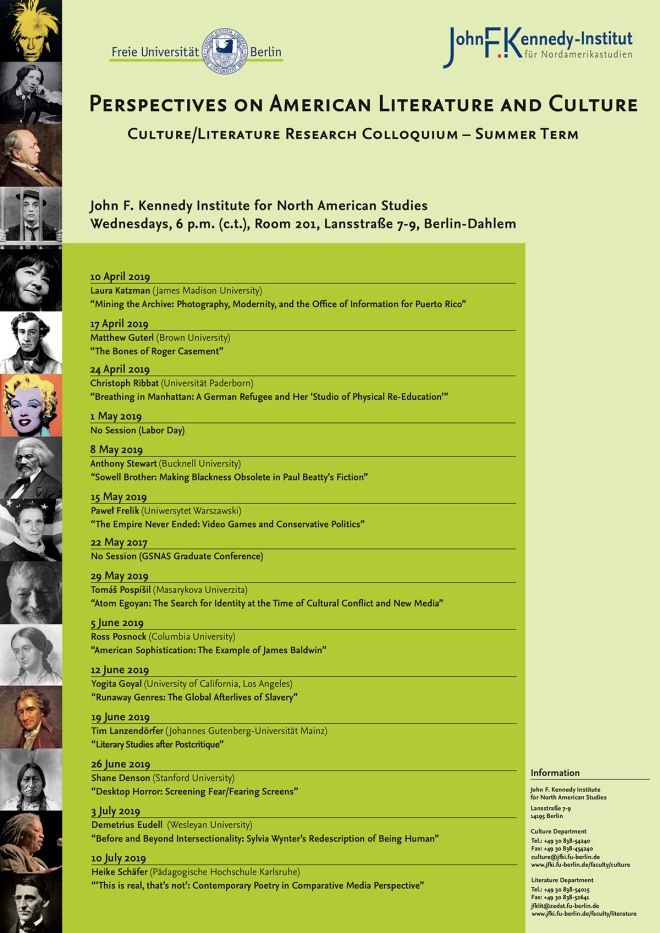
On June 26, 2019, I’ll be giving a talk titled “Desktop Horror: Screening Fear/Fearing Screens” at the Culture/Literature Research Colloquium at the JFK Institute for North American Studies, Freie Universität Berlin. Thanks to Frank Kelleter, Alexander Starre, and everyone else involved for inviting me and making this happen!
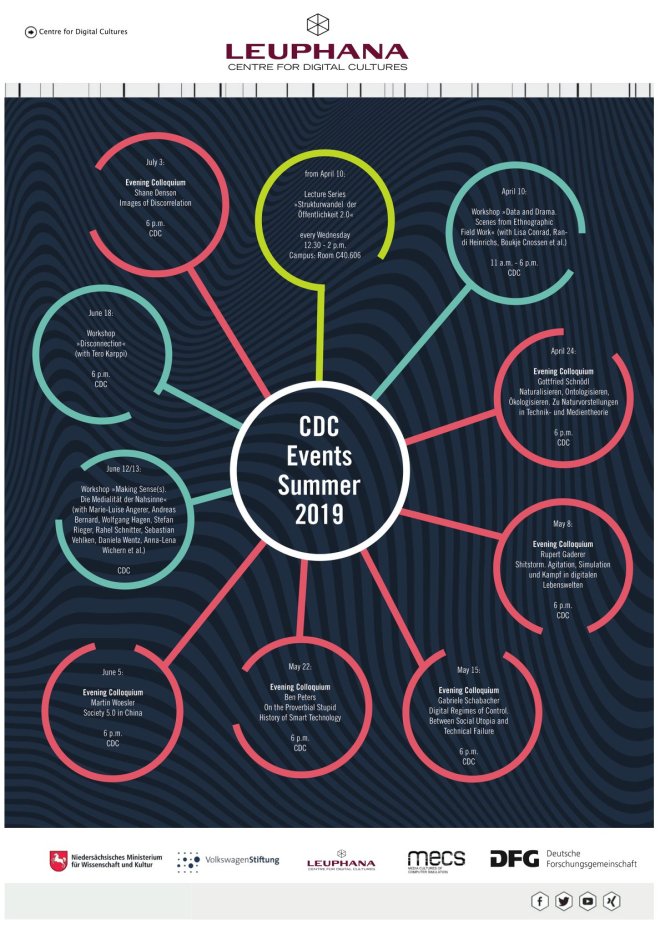
On July 3, 2019, I will be giving a talk titled “Images of Discorrelation” at the Center for Digital Cultures/Institute for Advanced Studies on Media Cultures of Computer Simulation at the Leuphana University in Lüneburg, Germany, in the context of a research fellowship I’ll be doing there this summer. Thanks to Florian Hoof, Claus Pias, and everyone at CDC/MECS for making this happen!
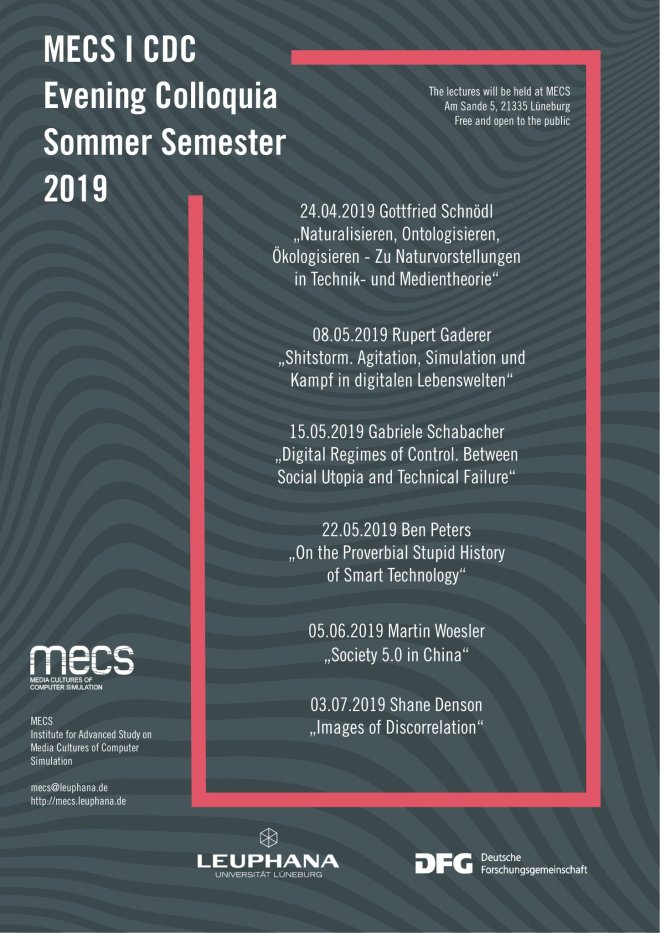
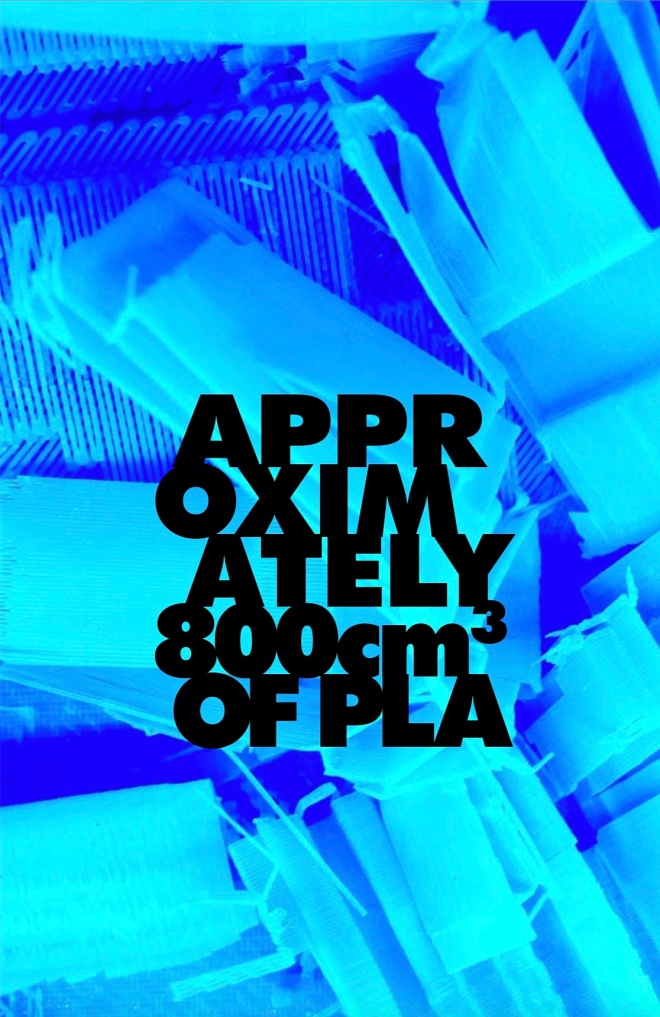
The exhibition catalog for APPROXIMATELY 800cm3 of PLA, curated by Gabriel Menotti at last year’s Center for 21st Century Studies conference on The Ends of Cinema (May 3-5, 2018 at University of Wisconsin-Milwaukee) is now online.
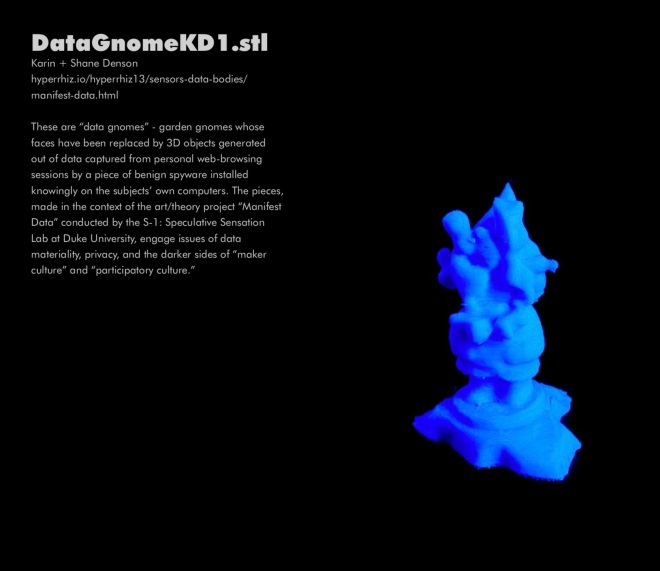
Among the pieces featured was DataGnomeKD1.stl, a generative/deformative 3D-printed garden gnome that Karin Denson and I made a couple of years ago in the context of a larger project at the Duke S-1: Speculative Sensation Lab. (You can check out our publication here.)
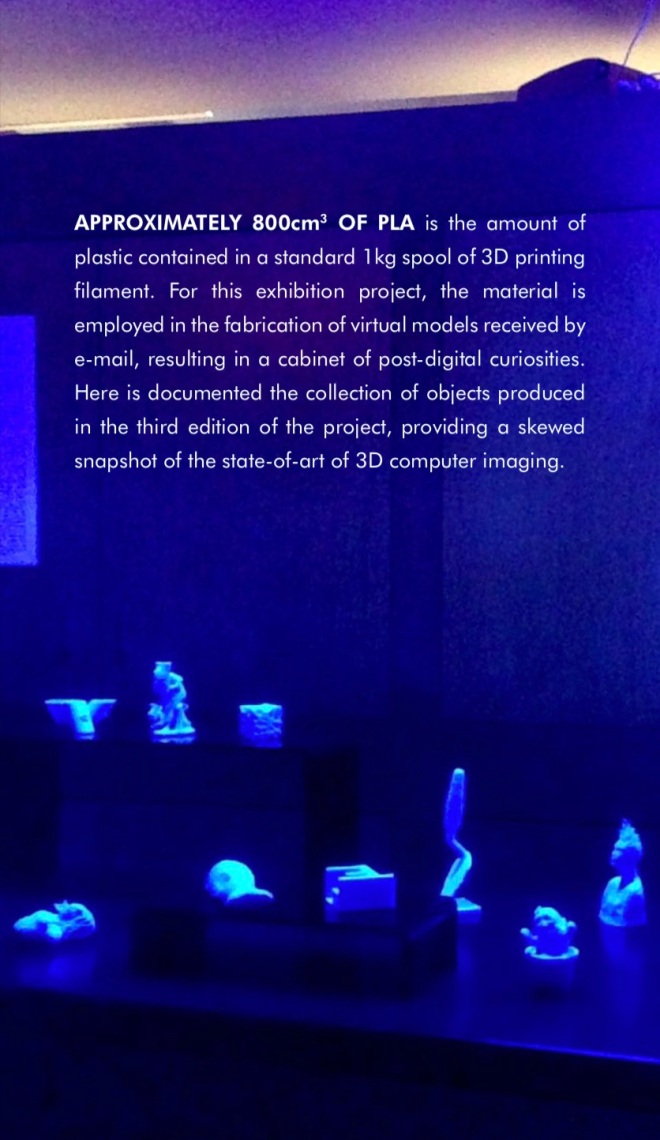
Thanks to Gabriel Menotti for putting together this playful show!
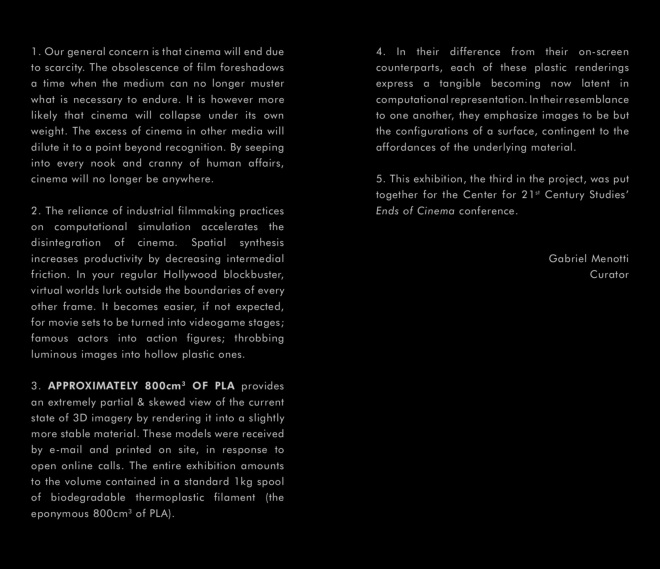
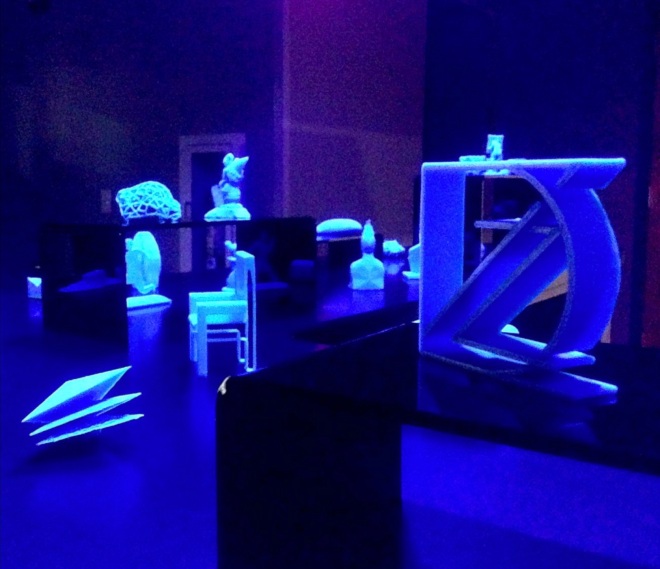
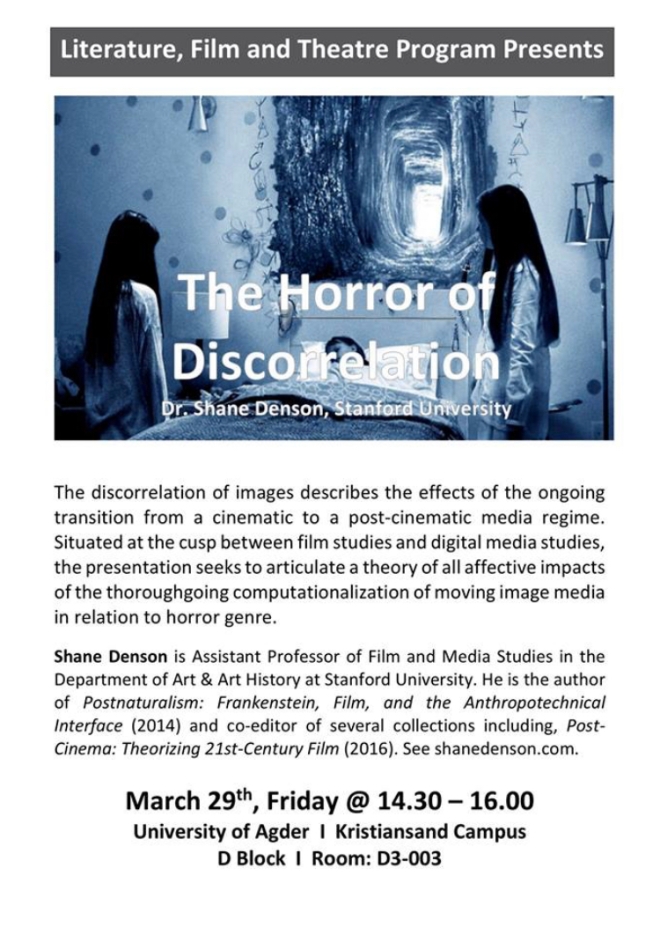
This week, thanks to a kind invitation from Julia Leyda, I have been in Trondheim, Norway, where I’ve led two workshops on videographic scholarship and pedagogy with Kathleen Loock and, today, gave a talk on “Screen Time.” Tomorrow, March 29, 2019, I will head down south, where I will be speaking on “The Horror of Discorrelation” at University of Agder in Kristiansand, Norway. Thanks to Ahmet Gürata for inviting me!
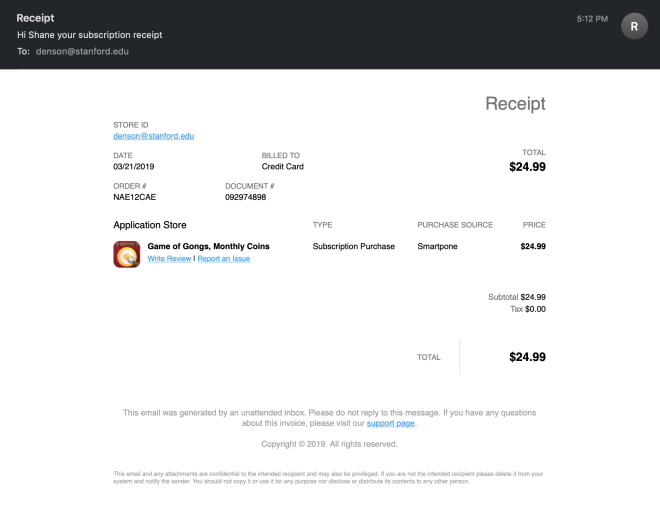
Today, I received this suspicious message on my university email account about a purchase, made on my “Smartpone,” and related to a game I don’t play. I promptly reported it as spam to Stanford IT. Within seconds, I was “rewarded” with the following message:
Thank you for reporting this suspicious message. This was a simulated phishing email sent as part of Stanford’s Phishing Awareness Program. Congratulations on successfully identifying and reporting it to us! No further action is necessary.
Yay! I guess…
Yeah, well, I think it’s kind of weird to get phishing messages from your employer, and I am getting this gamified spam on a regular basis — several “simulated” phishing messages a week.
But what is the status of a “simulated” phishing attack anyway? In this connection, I am reminded of Baudrillard on the impossibility of “simulating” a bank robbery:
Organize a fake holdup. Verify that your weapons are harmless, and take the most trustworthy hostage, so that no human life will be in danger (or one lapses into the criminal.) Demand a ransom, and make it so that the operation creates as much commotion as possible — in short, remain close to the “truth,” in order to test the reaction of the apparatus to a perfect simulacrum. You won’t be able to do it: the network of artificial signs will become inextricably mixed up with real elements (a policeman really will fire on sight; a client of the bank will faint and die of a heart attack; one will actually pay you the phony ransom).
This sounds exactly like what my employer — a major research university situated in the midst of Silicon Valley, the simulacral heart of the control society — is doing. And in their attempt to remain close to the “truth” to test the reaction of the apparatus to a perfect simulacrum, the network of artificial signs is bound to get mixed up with real elements, perhaps by design: these simulated attacks pretend towards an attempt to inoculate us against the danger, but they are also tools of control: of surveillance and, if need be, shaming (I am told by colleagues who have clicked on the links that a finger-wagging message appears and tells the user to be more careful…).
Having recently parried one of these attacks to the satisfaction of my employer, I received the usual message of congratulations. Being knee-deep in a major writing project, I may have been feeling a little humorless that day. I wrote back:
Thanks, but I am not sure that this really adds to my productivity.
I got a message back, within minutes, from someone claiming to be a human (but it seems I should have required they fill out a Captcha or click on all the stoplights in a picture or something). Anyway, this “human” wrote back a message so chilling that it sent shivers down my spine the likes of which I have rarely experienced outside of Poe or Kafka:
Hi Prof. Denson, we give up a little bit of our productivity for an increased amount of security. Thank you for the feedback and for reporting the email.
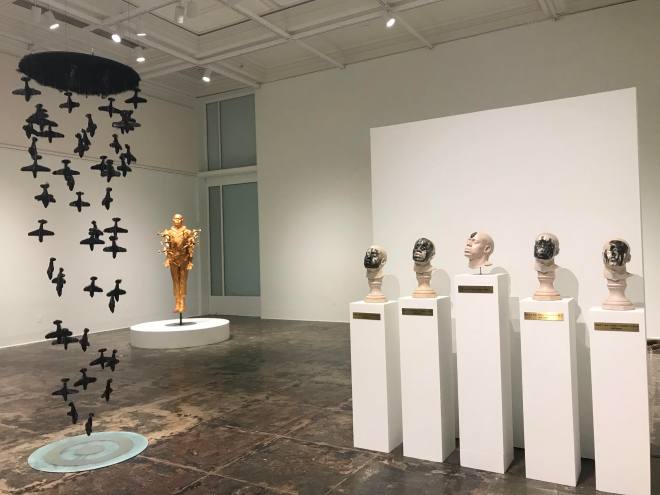
The other day I promised (or threatened) to reactivate this blog for things other than announcing talks, publications, etc. It remains to be seen how much time I will actually devote to this, but my thought was anyway that I should reclaim the time I waste on social media (especially Facebook). Accordingly, why not post just the pictures I would otherwise be sharing there here instead? Of course, these are not just any pictures…
These are from the moving show Michael Richards: Winged, which is currently up at the Stanford Art Gallery (but ending this week, so hurry if you plan to see it!).
Michael Richards, whose work powerfully probes race in American culture, tragically died in the September 11, 2001 attacks on the World Trade Center, where he was working in his studio on the 92nd floor of Tower One.
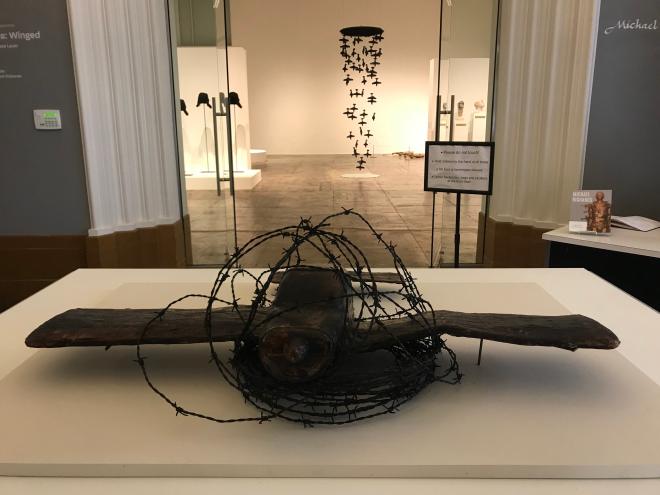
The show was recently an Artforum Critics’ Pick.
Check it out if you can!
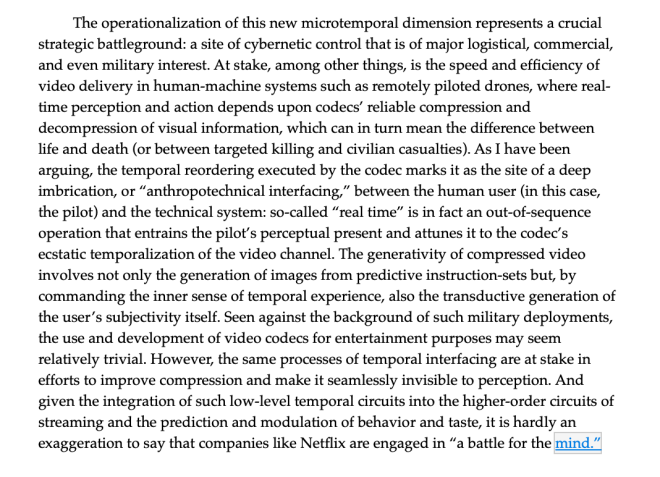
I quipped the other day on Facebook, “Thank god blogs are dead!” — thinking of some particularly toxic moments and scenes from “back in the day.” Facebook must have heard me… I wanted to post the rough scrap of writing above to that piece of … social media today (with the clever caption: “Brian O’Blivion makes a surprise cameo appearance in my book! Was not expecting this…”), but FB won’t accept my image or post my comment. I know that the network is having major difficulties today, difficulties that will likely pass quickly, but this episode has gotten me thinking (somewhat romantically) about the possibility of a different Internet. The blogosphere was often horrible, but could it ever be as bad as Facebook? Could #FacebookDown and #InstagramDown spark a mass migration and a revival of blogs? Probably not… But leave a comment if you’d like to see it happen! (Or if not, why not.)
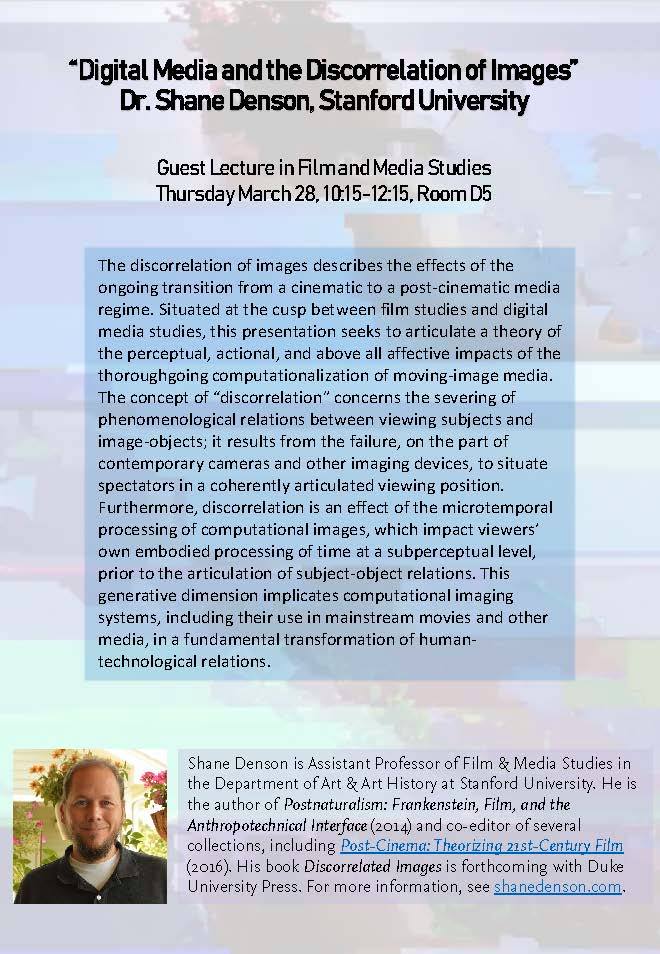
In the week of March 25 – 29, 2019, I will be giving several talks and workshops in Norway — first at the Deapartment of Art And Media Studies at the Norwegian University of Science and Technology in Trondheim, and then at the Department of Nordic and Media Studies at the University of Agder in Kristiansand.
First, in Trondheim, on March 26 and 27, I will be participating on two workshops on videographic pedagogy and scholarship with Kathleen Loock.
Then, on March 28, also in Trondheim, I’ll be presenting work from my book project Discorrelated Images.
Finally, on March 29, in Kristiansand, I’ll be giving a talk on contemporary horror, also under the perspective of discorrelation.
Thanks to Julia Leyda for inviting me to Trondheim, and to Ahmet Gürata for the invitation to Kristiansand!
